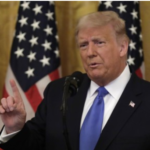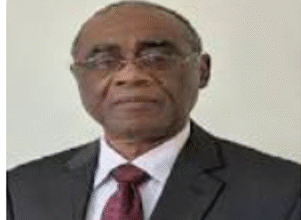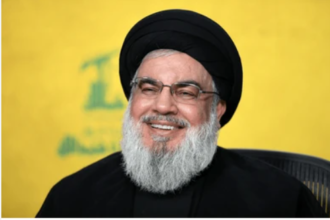By Alon Ben Meir
The human toll of Sudan’s civil war, now in its third year, has reached catastrophic proportions, with widespread carnage and violence against civilians. As of November 2024, 28,700 people have been killed. Over 12 million have been internally displaced as of April 2025, and 3.3 million fled to neighboring countries – Chad, South Sudan, and Ethiopia. In Chad alone, 90 percent of Sudanese refugees are women and children.
The ongoing civil war in Sudan is tragic, but the greater tragedy is that if the international community sits on its hands and does nothing to stop this horrific war and prevent further escalation of the conflict, it will come at an unfathomable price
The Sudan civil war, which was reignited in 2023, stems from decades of ethnic, religious, and political tensions and historical grievances, compounded by a power struggle between the Sudanese Armed Forces (SAF) and the Rapid Support Forces (RSF). Following the ouster of dictator Omar al-Bashir in 2019, SAF leader Gen. Abdel Fattah al-Burhan and RSF commander Gen. Mohamed Hamdan “Hemedti” Dagalo formed a transitional government but clashed over integrating the RSF into the SAF and transitioning to civilian rule. The RSF’s refusal to submit to SAF authority and disputes over control of resources, especially gold, escalated into an open war in April 2023.
Sudan’s colonial legacy created arbitrary borders that ignored ethnic and cultural divisions, leading to the marginalization of non-Arab regions like Darfur and South Sudan. Post-independence governments in Khartoum imposed Islamic law (Sharia) on non-Muslim populations, fueling deep resentment.
Moreover, economic inequalities existed between the predominantly Arab and Muslim Northern elites, who historically controlled wealth and resources, and the African Animist and Christian Southern and Western regions, which faced the plunder of their resources and neglect over the years. Oil-rich areas like Darfur and Kordofan became a breaking point over equitable resource distribution and the absence of transparency in distributing revenues generated from the sale of gold and oil.
The SAF wants to retain control of the Sudanese state and military apparatus and has resisted RSF demands for autonomy or power-sharing, viewing it as a rogue paramilitary. The RSF, which grew from and is predominantly comprised of members of the notorious Janjaweed militia, seeks to secure political legitimacy, institutionalize its influence through a parallel government, and retain control over lucrative resource-rich territories. Regardless of the historic account and the decades-long grievances, the atrocities being perpetrated against innocent civilians, especially women and children, defy human consciousness to the core.
Human rights abuses
The non-Arab communities have systematically been targeted by the RSF and allied militias, duplicating tactics from the 2003 genocide. The RSF committed egregious crimes against humanity, manifested by widespread sexual violence, looting, destruction of civilian infrastructure, extrajudicial killings, sex trafficking, and intimate partner violence, particularly in Darfur.
Between April 2023 and October 2024, there were 119 verified attacks on health facilities, leaving 80 percent of hospitals in conflict zones non-operational. Zamzam, Sudan’s largest refugee camp, located in Darfur, was bombarded by the RSF for months, with at least 300 killed between Zamzam and Abu Shouk, a nearby camp.
Both parties have committed massacres and executions, targeting civilians. In January, members of the SAF executed at least 18 people in Khartoum, mostly individuals from Darfur or Kordofan, and a video circulated depicts SAF members reading a list of alleged RSF collaborators, stating “killed” after each name. UN High Commissioner Volker Türk emphasized that such acts are war crimes and must never be normalized. “Deliberately taking the life of a civilian or anyone not or no longer directly taking part in hostilities is a war crime,” said Türk.
Nothing can justify or explain the day-in and day-out atrocities that send shocking shivers down the spine of every decent human being.
Over 30 million people in Sudan are in need of humanitarian assistance, more than 15 million of whom are children; at least 635,000 Sudanese are experiencing famine. The Trump administration’s cuts to aid have been, as Norwegian Refugee Council head Jan Egeland described, a “moral failure.” Over 300 soup kitchens which received US funds were forced to close within days of USAID’s dismantlement. Disease runs rampant, with 3.4 million children at risk of epidemic disease.
As the UN Working Group on Children and Armed Conflict reported in December 2024, both the SAF and RSF forcibly recruit minors as young as seven, including in combat roles. These findings are corroborated by the African Centre for Justice and Peace Studies and the International Committee of the Red Cross. Children are also suffering the deepest violation of sexual violence, with 221 reports of rape against children recorded in 2024.
International failures
The international community’s failure to curb arms flows or enforce ceasefires has exacerbated suffering, leaving Sudan’s civilians trapped in what the UN calls “the world’s largest humanitarian crisis.”
Both sides are entrenched, with external backers. The United Arab Emirates (UAE) backs the RSF, while Egypt supports the SAF, which prolongs the conflict. These divisions led to the failure of the peace talks in Jeddah in late 2023 because of mutual distrust and competing regional interests. The SAF and RSF may end up establishing de facto partitioned states, which would further entrench the conflict.
Prospects for a Solution
The international community must act now to stop the fighting and save the lives of countless people who have been victimized by two corrupt warring generals whose lust for power far supersedes the lives of the multitudes, especially women and children, who are killed, displaced, and dying from starvation.
On April 15, the UK, Germany, France, the African Union and the European Union co-hosted the London Sudan Conference, bringing together foreign ministers and high-level representatives to find a resolution to the war. The participating nations have correctly called for an immediate and permanent ceasefire, an end to external interference, and a renewed commitment to Sudan’s unity, sovereignty, and territorial integrity. They also emphasized the importance of negotiating a settlement leading to a civilian-led government, emphasized the need to protect civilians and coordinate international humanitarian assistance, and firmly rejected any effort to establish parallel governments or to partition the country.
Although their statements are well-meaning and necessary, they fall far short of what must be done immediately to end the unspeakable carnage and destruction. Indeed, disagreement between key Arab states, especially those that have intervened on opposite sides of the conflict, and the co-chairs prevented any further consensus on ending the war. Sadly, the conference may turn out to be nothing but another round of aimless speeches unless concrete actions are taken without delay.
The UK, France, Germany, and the UN must lead to end the war by taking and enforcing the following measures.
Establishing a transitional government: A long-term, mutually acceptable political solution is needed to prevent future wars that have plagued Sudan for decades. To that end, the formation of a civilian government is critical to insulate it from military dominance, while granting autonomy to regions like Darfur, which require compromises and security integration between the RSF and the SAF armies under a single command.
Deploying an international peacekeeping force: The UK, France, and Germany must sponsor a resolution mandating an UN peacekeeping force comprising African Union states along with the UK, France, and Germany playing a supervisory and training role to protect civilians, deter attacks on non-combatants, secure humanitarian corridors, monitor ceasefire violations, and enforce compliance.
They should impose comprehensive arms embargoes and sanctions on the countries supplying weapons—the UAE, Egypt and Turkey—while enlisting other countries to exert international pressure.
They must leverage their aid to demand unconstrained humanitarian access, including allowing cross-line aid delivery while supporting local responders to emergencies.
They need to ensure that any peace process includes civil society groups, funds grassroots organizations, and supports independent media to counter disinformation and hate speech.
They ought to provide unified technical and financial assistance to help implement any mediated peace agreement.
The Sudanese people have endured indescribably torturous death, destruction, displacement, and disease. The mediators must remember that history will repeat itself unless the agreement between the warring parties addresses Sudan’s foundational divides, inequality, and ethnic disparities, not just silencing guns.









